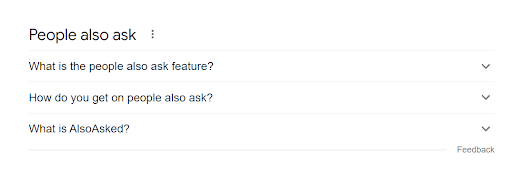There are so many keywords out there; which one is right for me?
If you have ever done any SEO work, then you know how draining it can be to come up with the best keywords to target.

Sometimes you might have a good idea off the top of your head.
… But it turns out only ten people search for it every month.
Other times(perhaps most times), you will have no idea of what keywords to select for your website.
Well, what if I told you that finding keywords can be simplified into a fail-proof process that results in you knowing exactly what search terms to target?
Does that perk your ears up a bit?
If so, then this will be the best article you read all week…
Because I’m about to show you how you can simplify your keyword selection by using a tried and tested process.
But first, let’s go over the fundamentals of finding the best keywords since we have got nothing without a solid foundation.
What are Keywords exactly?
Keywords are the bread and butter of any SEO strategy because you would not have any direction without them.
In terms of its definition, Keywords are:
- Words and phrases that people type into Google search
People are always looking for information and services on Google. To do this, they go to the search bar and type in whatever pops up in their minds.
This is very important because the specific words they put in that search bar decide what web pages Google returns for them.
This works so effectively because Google has developed a watertight algorithm that figures out what people want to see.
Our goal in any SEO campaign is to take what people are looking for(KEYWORDS) and satisfy that demand with our web pages.
Once we satisfy that demand(and do it better than everyone else), then Google’s algorithm will place us at the top of the search results.
This brings us to one of the most important fundamentals in selecting keywords, and it’s that:
Keyword Intent is KING when it comes to ranking.
Most people are searching on Google for a specific reason and the keywords they use reflect that through keyword intent.
When doing SEO on our website, our job is to match that intent with our content.
 (Satisfying a searcher’s intent is what leads to rankings)
(Satisfying a searcher’s intent is what leads to rankings)
The better we give the people what they want, the more we get rewarded with free traffic.
And simply put, if your page is not satisfying the searcher’s intent, you won’t rank.
So when selecting your keywords, be mindful about what intent each keyword carries.
If you’re not sure: No problem, just google search the keyword and look at what’s already ranking at the top.
99 times out of 100, they’ve nailed the search intent for that keyword(or else they wouldn’t be ranking so high).
And if that’s not working, check out the “People also ask” section to get a tighter read on the searcher’s intent.

And if you want even more, just scroll down to the bottom and you will see the Related Searches section:

Looking at these is pretty much a cheat code for finding the intent behind a keyword and I use them for all my keywords.
All you need to do is type it into Google.
Now that you’re focused on keyword intent, another key fundamental is that:
Traffic does not always equal results
There will be some keywords that you’ll find out in the SEO jungle that will excite you with their large traffic numbers.
But don’t fall for this trap.
Before you decide to commit to this keyword, try to put yourself in the shoes of the person searching these keywords and ask yourself:
“Is this person a potential customer, or can they turn into a potential customer.”
This goes back to keyword intent because understanding the motivation behind a search is key to increasing your sales.
Let’s say you are Dentist looking to bring on more clients.
Something a potential client would likely search is “How to fix a toothache.”
In this example, the person behind the keyboard would make for an extremely qualified lead as they have a pressing problem that needs a solution.
And that keyword is getting 700 searches a month, so that means a potential for a lot of piping hot leads.
On the other hand, say you a keyword like vampire’s teeth with a similar difficulty score but brings in 22,000 searches a month.
Which of these two keywords should you invest in?
One brings in 700 searches a month, and the other brings in 31 times that at 22,000.
You see, this is the biggest mistake traffic-hungry SEOs make every day.
They are so thirsty for traffic on their website that they forgot the entire point of doing SEO in the first place.
To bring CUSTOMERS into the business!
Even if you somehow ranked for vampire’s teeth, which you won’t as a dentist unless you satisfy the intent by actually selling vampire fangs…
It would be a wasted effort. Because how in the world are you going to turn that traffic into a customer for your Dental office?
On the other hand, those 700 searches a month going towards toothache are prospects in heat.
They are waiting for a dentist to solve their problem and are much easier to convert into a customer.
So when you are looking for keywords, always keep in mind if ranking for that keyword will put you in front of a potential customer. That way, your SEO efforts will lead to moving the money needle, and not just a bigger graph in Google Search Console.
Phase 1: Keyword Research
One of the most important parts of a keyword research strategy is finding the keywords in the first place.
If you don’t have a good pool of keywords to choose from, how are you going to find your best keywords?
Some SEOs recommend taking your idea and typing it into Google Search to find keywords, however, this is just inefficient.
With SEO tools like Semrush, Ahrefs, or Ubbersuggest you can find thousands of keywords by just pressing one button.
But I don’t do keyword research like most other SEOs, here is my nifty little trick that has helped me find the most valuable keywords in my niche.
Would you like to hear how exactly I do it?
I don’t.
I don’t look for keywords, instead…
I let my competitors find the keywords for me, and then I steal them :).
 (Me stealing my competitor’s keywords with class)
(Me stealing my competitor’s keywords with class)
It might sound a little evil, but it just works, like mad.
I have a spreadsheet of 30 websites that have been giving me keywords like goldmines.
What I like to do is the first type in a keyword related to my industry and then look for the websites that are ranking.
If those sites are ranking, they are clearly doing SEO work and likely have some juicy keywords I’d like to rank for as well.
But, before I add a website to my collection, I’ll first check to see if they offer similar services to me.
The more similar, the better, and most times, the keywords they are trying to rank for are keywords I want to rank for as well.
So, to fast-track your keyword research, find competitors in your industry, and take advantage of the research they’ve already done.
You’ll find that you are spending MUCH less time finding MUCH better keywords.
Phase 2: Refine Your Raw Keyword List
Think of yourself as a gold miner. You’ve done the gathering, and now you need to turn raw ore into gold.
By this point, you should have a large pool of keywords to choose from, however, not all of them are worth pursuing.
You could theoretically look at each individual keyword and identify its strengths and weaknesses however, that’s not scalable.
Instead, we want to work to be as efficient and impactful as possible, so we will enlist the help of filters to find the best keywords quickly.
If you would like to learn how to use filters, check out this guide from Microsoft.
So, after you’ve collected all of your keywords from your competitors, dump all of those into a filter to get rid of all the fat.
 (Trim the fat to get to all the good keywords)
(Trim the fat to get to all the good keywords)
Now, the filters you decide to use, are largely subjective.
I like to go for keywords that are easy to rank for and have high volume, so my filters cater to that.
I’ll create a range in terms of keyword difficulty… usually 0-40 and then sort volume from High to Low.
Once the filters are in place, it’s time to look for real opportunities.
Phase 3:Finding the Diamonds in the Rough
After stealing our competitor’s keywords and setting filters on top of that, we now have a very targeted list of keywords.
Even then, at this stage, we’re going to have more keywords than we have the time or resources to cater to, so we want to pick the ones that bring the most returns.
This is the point where you want to take out your magnifying glass and analyze these keywords carefully. If you’re going to invest in creating content, you want to be certain your placing the right bets.
Something I like to do is look at the high volume, low KD keywords that have a higher CPC(cost per click).
If people are actively paying for these keywords, there’s a good chance that you want to rank for it as well.
However, that’s not the end all be all.
Sometimes, there are keyword opportunities that other marketers haven’t found yet. These are the REAL winners.
We need to go back to the fundamentals and realize the searcher’s intent behind each keyword to find these.
The goal here is to find high volume, low difficulty keywords that a potential customer would search for.
If you can get your content to show on their search results, you stand a good chance of converting them into leads.
Now, before you start finalizing your list, you’re going to want to avoid a couple of traps.
Fatal Keyword Traps You Need to Avoid
Before you put a keyword into your final list, you’re going to want to have a few checks in place.
First, understand that keyword tools aren’t accurate with their difficulty ratings but instead give ballpark estimates.
So it behoves you to do a quick Google search to see who exactly you are fighting against for those rankings.
I’ve seen KD 20 terms be infested with authoritative giants far more times than I can count. Trying to rank for these keywords would have been a waste of effort unless it puts me in front of the most qualified leads.
If that’s the case, then I might compete for it anyways. This is where your personal experience and ability to find opportunities shine.
Unfortunately, there’s no other way to develop this other than raw experience.
Of course, you might be thinking…
“Well, great, I don’t have mountains of experience, so how am I supposed to find my best keywords now”
If that’s you, then I would recommend partnering up with an expert SEO agency. Doing so will save you a lot of time that you could be spending doing what you’re already good at in your business.
Another common keyword trap is going for broad keywords instead of longtail ones. While broader keywords typically have higher volume, the conversion rates suffer because they aren’t as targeted.
Here is a graph from Backlinko that demonstrates this:

Targeting long-tail keywords will allow you to dodge the competition while also positioning yourself in front of better converting prospects.
So as a reminder, don’t fall for the bait of high volume broad keywords as they oftentimes do not convert into customers and are extremely competitive.
Conclusion
There you have it, an advanced keyword research process that even a beginner can do.
Keyword selection is by far the most important part of any SEO strategy because picking the best keywords means you can find more customers for far less effort.
However, now that you’ve learned how to find the best keywords in your niche doesn’t mean you can just ride off into the sunset…
One thing is knowing, another is doing.
And with SEO, your results ONLY come from doing.
So if you want to start ranking on Google, and bringing in more customers than you can handle, then you’ve got to get started on doing it.






